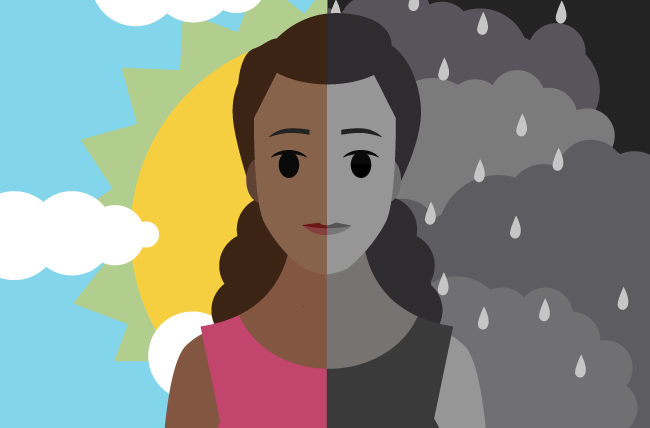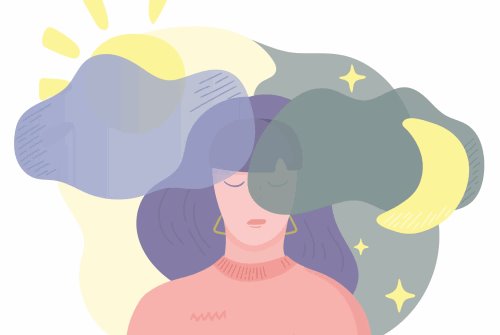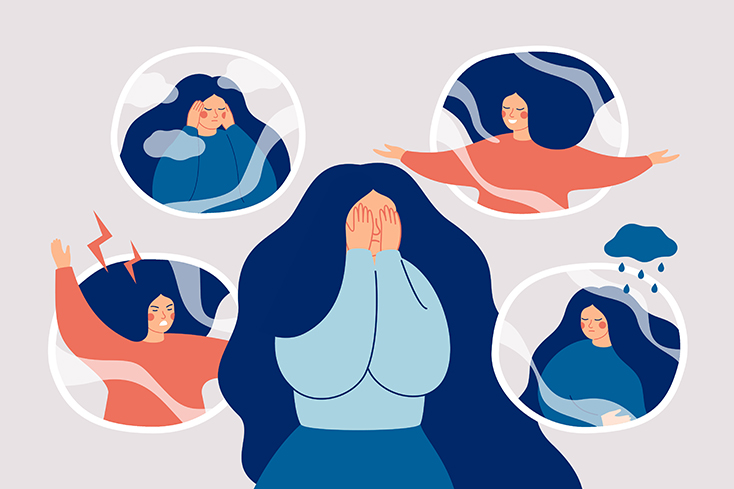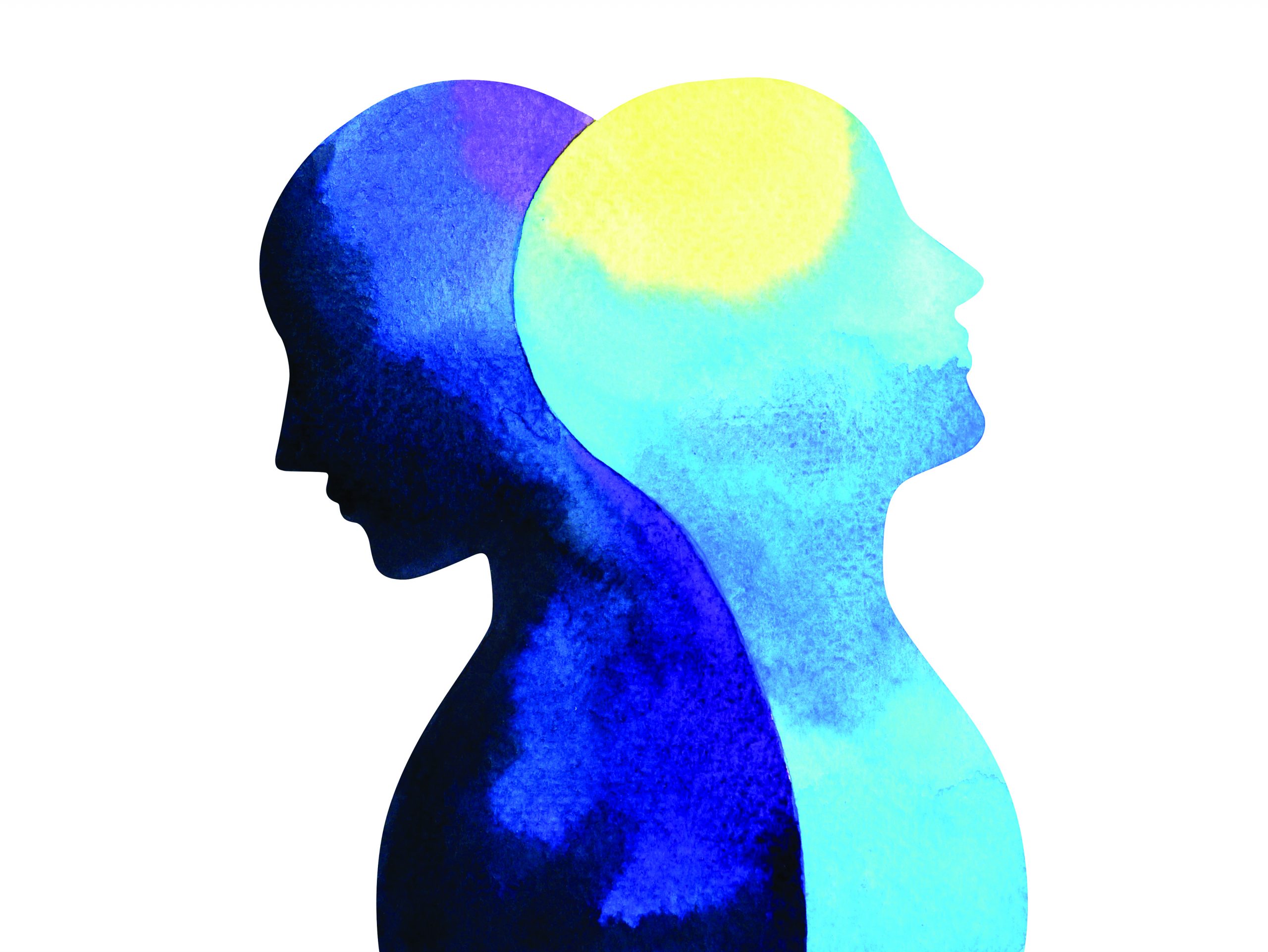
Bipolar disorder, previously known as manic depression, is a mental illness characterized by frequent mood swings that include emotional peaks (mania or hypomania) and lows (depression).
When you’re depressed, you might feel sad or helpless, and you might lose interest in most things. When your mood changes to mania or hypomania (a milder form of mania), you can feel euphoric, energized, or irritable. Sleep, energy, activity, judgement, actions, and the ability to think clearly can all be impacted by mood swings.
Mood swings can happen once or many times a year. Although most people will experience some emotional symptoms in between episodes, some will not.

Different types of Bipolar Disorder:
- Bipolar I disorder: This type of bipolar disorder is diagnosed when manic episodes last at least seven days and are accompanied by psychotic features, or the manic symptoms are severe enough to require immediate hospitalization to prevent harm to oneself or others. Depressive episodes, typically lasting at least two weeks, also often occur.
- Bipolar II is a mood disorder: Mania does not play a role in bipolar II disorder. Instead, the disorder is characterized by recurrent bouts of major depression and hypomania, a milder type of mania. You must have had at least one hypomanic episode and one major depressive episode in your lifetime to be diagnosed with bipolar II disorder.
- Cyclothymic disorder: Cyclothymia is a subtype of bipolar disorder. Cyclothymia, like bipolar disorder, is characterized by cyclical mood swings. The peaks and downs, however, are not extreme enough to be classified as mania or major depression.
- Bipolar disorder as a result of another medical or drug abuse issue: Some bipolar disorders do not follow a predictable pattern. They therefore may not correspond to the other three disorders. They do, however, follow the requirements for irregular mood changes.

Symptoms of Bipolar Disorder:
7 Signs of Mania:
- For extended periods of time, feeling excessively happy or “high.”
- Having a reduced need for sleep
- Talking quickly, always with racing thoughts
- Being deeply agitated or impulsive
- Easily distracted
- Being overconfident of one’s abilities
- Involving in risky activities, such as impulsive sex, gambling with life savings, or going on large spending sprees
7 signs of Depression:
- For extended periods of time, you can feel depressed or hopeless.
- Isolating from friends and family.
- Losing interest in things you used to love.
- Experiencing a big change in appetite
- Feeling really tired or drained of energy
- Having memory, concentration, and decision-making issues,
- Contemplating or attempting suicide, or being preoccupied with death

Treatment for Bipolar disorder
Your doctor will assess the right care option for you after you’ve been diagnosed. Bipolar disorder can be treated with a variety of approaches, including:
- Prescription drugs
- Behavioral therapy is a term that refers to a type of
- Treatment for substance abuse.
- Electroconvulsive therapy
Your care is normally overseen by a licensed psychiatrist. A social worker, counselor, or clinical nurse practitioner may be involved in your treatment.
Kritika is a freelance content writer with Femsay.com

